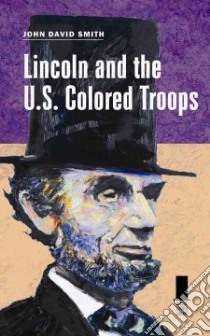Lincoln and the U.s. Colored Troops - 9780809332908
Un libro in lingua di Smith John David edito da Southern Illinois Univ Pr, 2013
- € 22.30
- Il prezzo è variabile in funzione del cambio della valuta d’origine
Though scholars have written much on emancipation and the USCT, Smith’s work frames the evolution of Lincoln’s ideas on emancipation and arming blacks within congressional actions, explaining how, when, and why the president seemed to be so halting in his progression to military emancipation. After tracing Lincoln’s evolution from opposing to supporting emancipation as a necessary war measure and to championing the recruitment of black troops for the Union Army, Smith details the creation, mobilization, and diverse military service of the USCT. He assesses the hardships under which the men of the USCT served, including the multiple forms of discrimination from so-called friends and foes alike, and examines the broad meaning of Lincoln’s military emancipation project and its place in African American historical memory.
As Smith asserts, no story is more important in understanding the broad meaning of the American Civil War than Abraham Lincoln’s metamorphosis from opposing emancipation in the first eighteen months of the conflict to his issuance of the preliminary Emancipation Proclamation (September 22, 1862) and his final emancipation edict of January 1, 1863.
Drawing on a broad range of sources, including many letters and texts by the men of the USCT, Smith’s welcome study illuminates this critical period in Civil War history and reveals how Lincoln’s evolution changed not only the war, but America and even Lincoln himself.
Informazioni bibliografiche
- Titolo del Libro in lingua: Lincoln and the U.s. Colored Troops
- Lingua: English
- Autore: Smith John David
- Editore: Southern Illinois Univ Pr
- Collana: Southern Illinois Univ Pr (Hardcover)
- Data di Pubblicazione: 04 Novembre '13
- Genere: Lingua Inglese
- Argomenti : African American soldiers History 19th century
- Pagine: 156
- Dimensioni mm: 203 x 127 x 0
- EAN-13: 9780809332908


